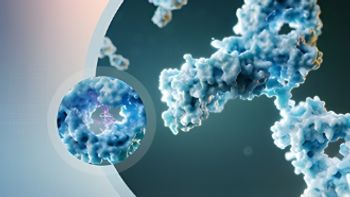
Xenobiotics in Metabolomic Studies and Pine Needles as PFAS Detection Samples: An ASMS Interview with Erin Baker
At ASMS 2023, LCGC spoke with Erin Baker of the University of North Carolina at Chapel Hill. This segment previews one of several ASMS interviews that were conducted at the conference.
Baker spoke with us at ASMS 2023 in Houston, Texas, briefing us on current research endeavors including using liquid chromatography coupled to ion mobility spectrometry and mass spectrometry (LC–IMS-MS) to detect and study the presence of per- and polyfluoroalkyl substances (PFAS), and how the two types of spectrometry also help identify different xenobiotics in nontargeted metabolomic studies.
Baker is an Associate Professor of Chemistry at the University of North Carolina at Chapel Hill in Chapel Hill, North Carolina, USA.
In this interview clip, Baker answers the following questions:
- How do xenobiotics complicate the interpretation of nontargeted metabolomic studies?
- Can you explain how ion mobility spectrometry coupled with mass spectrometry and machine learning helps identify different types of xenobiotics in metabolomic studies?
- Why do we need new methods to monitor PFAS because of their toxic and bioaccumulative nature?
- Why are nontargeted analyses crucial in investigating the presence of PFAS considering the vast number of substances in the EPA CompTox PFAS list?
- How did the use of pine needles as passive samplers and LC–IMS–MS method contribute to detecting and studying the presence of different PFAS, including legacy and emerging replacements?
- What will you and your team be working on next in the field of PFAS analysis?
Our interview with Baker was one of several conducted live at ASMS 2023. Stay tuned for our other interviews conducted at ASMS.
Newsletter
Join the global community of analytical scientists who trust LCGC for insights on the latest techniques, trends, and expert solutions in chromatography.




